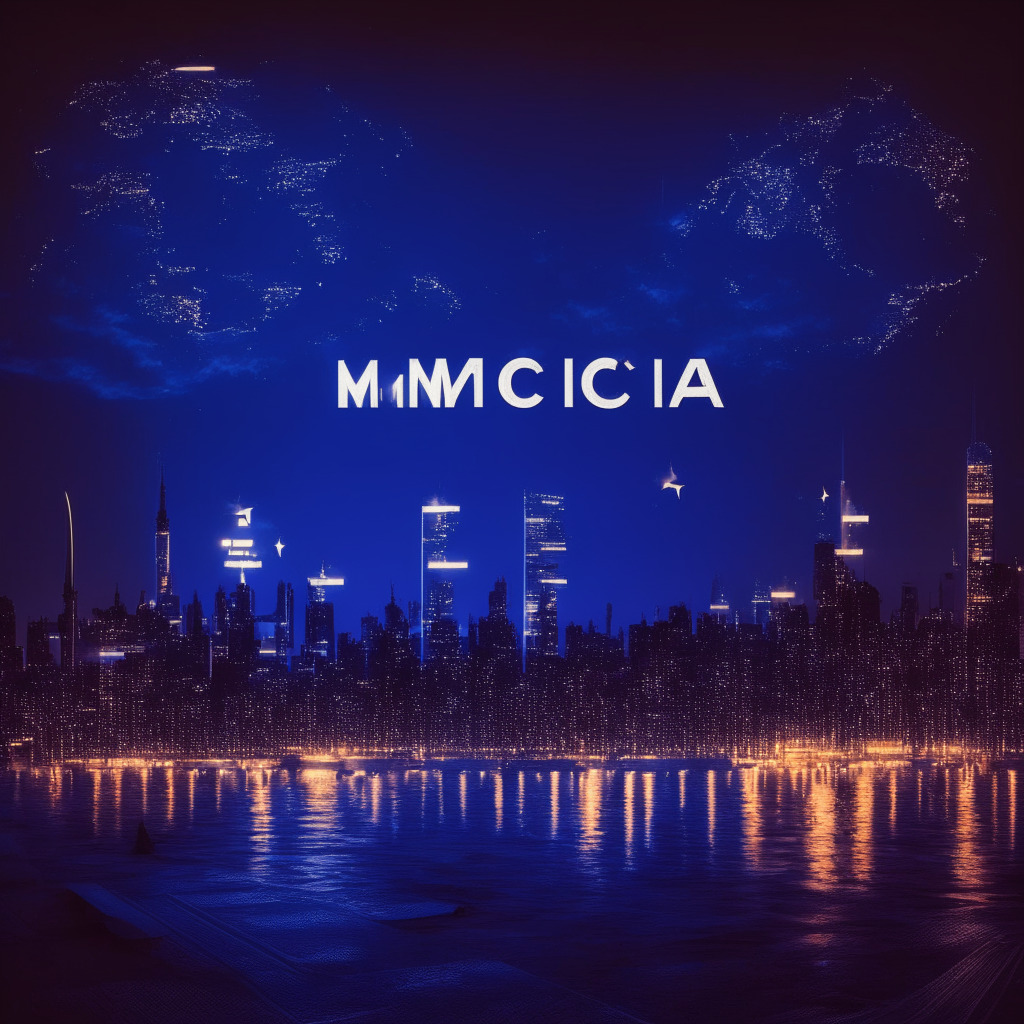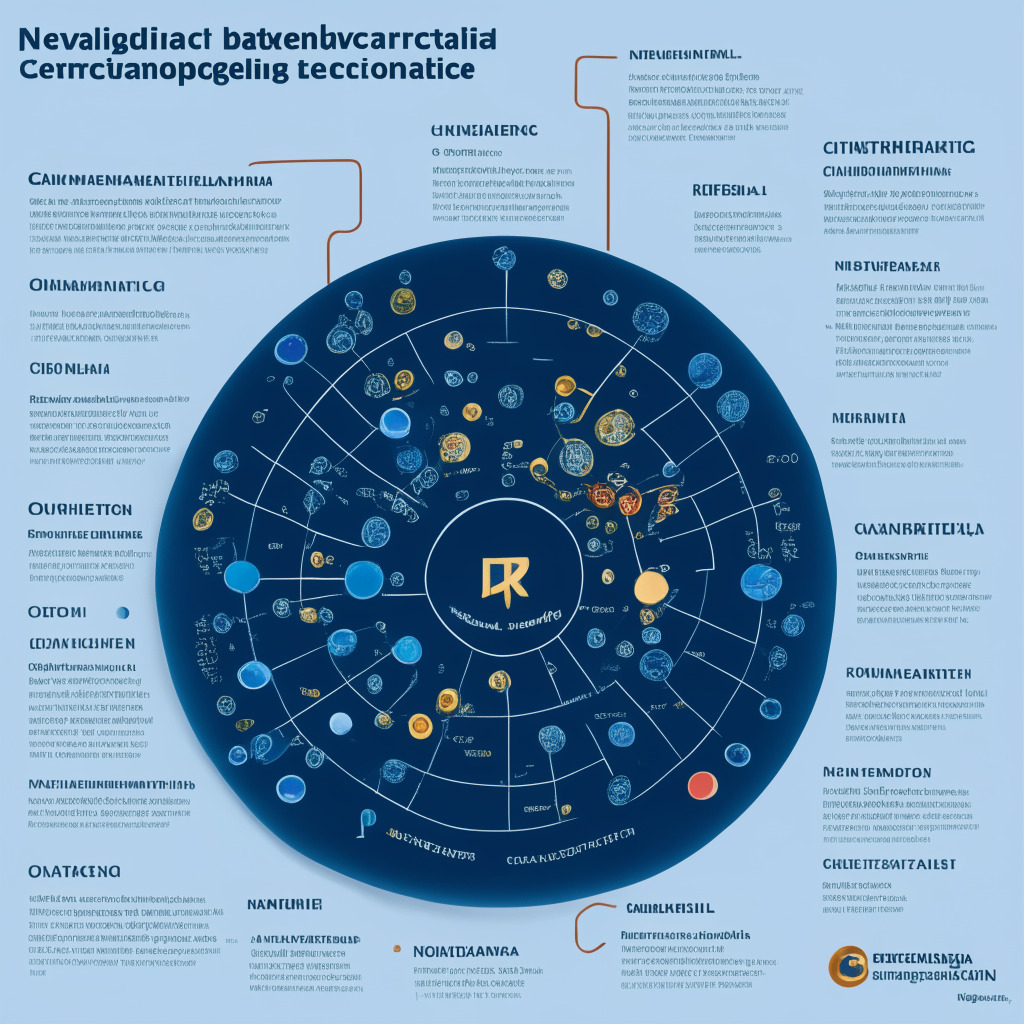“The European Union’s upcoming Markets in Crypto Assets (MiCA) regulation has raised concerns about the potential delisting of all stablecoins in Europe by June 30. MiCA aims to streamline processes and enhance oversight. However, its provisions concerning stablecoins are causing apprehension, especially as they seem to contradict the aspirations of many issuers for decentralization.”
Search Results for: MiCA
Navigating Malta’s Shifting Crypto Policies: Harmonizing with EU’s MiCA Regulations or Stunting Innovation?
“Malta is reshaping its regulatory landscape for cryptocurrency firms to align with the incoming pan-European Markets in Crypto Assets (MiCA) regulations, impacting businesses from exchanges to portfolio managers. This move indicates Malta’s commitment to global standards and ensures a seamless shift for local Virtual Financial Assets (VFA) Service Providers.”
Navigating MiCA: The EU’s Attempt at Blockchain Regulation and Its Impact on Crypto
The MiCA guidelines in the EU propose stricter regulations for crypto service providers and clampdown on market manipulation. However, they lack consideration for decentralized finance and central bank digital currencies. Moreover, they enforce a low reporting threshold eroding privacy rights, and require official approval for launching tokens, potentially inhibiting the development of new projects.
Binance in Crosshair: How MiCA Could Shape Crypto Firms’ Future in Europe
The world’s largest crypto exchange, Binance, faces uncertainty amidst allegations of regulatory breaches. The impending EU crypto regulation MiCA requires firms to comply in one member nation but Binance’s strategy of focusing on just a few EU countries may be risky. Robust scrutiny has led to Binance withdrawing from markets like Belgium, Netherlands, Austria, and Germany. How Binance adapts to MiCA requirements and shapes its compliance strategies will impact the future of cryptocurrency in Europe.
Navigating MiCA: Ukraine’s Struggle with new EU Crypto Regulation Measures
As Ukraine nears EU membership, it faces a critical shift with the impending Markets in Crypto-Assets Regulation (MiCA). The law’s stringent requirements for crypto service providers might reduce the attraction of Ukraine’s jurisdiction. Moreover, compliance challenges could discourage new entrants, potential legal risks, and steep issuance costs, affecting crypto exchange services. The regulation also overlooks certain crypto assets, leaving a potential legislative gap. However, feasible adaptation of MiCA could help Ukraine influence European crypto policy upon getting full EU membership.
Regulation Revolution: How MiCA and Euro Stablecoins Could Reshape the Crypto Landscape
The Markets in Crypto Assets (MiCA) regulation aims to introduce regulatory transparency to global crypto markets, including the creation of a European stablecoin. Amidst concerns over the U.S. economy and dollar-dominated transactions, the crypto market sees Euro-backed stablecoins as a critical alternative. This could potentially challenge the U.S. dollar’s dominance in digital asset markets.
Navigating the MiCA Legislation: Impacts on Private Stablecoins and the Future of Crypto Regulation
The European Union enacted the Markets in Crypto-Assets (MiCA) legislation, sparking controversy with a daily 200 million euros transaction cap for private stablecoins. This is meant to protect investors from large-scale stablecoin failures which could impact traditional financial systems. However, critics argue it could stifle innovation within the crypto landscape.
MiCA Regulations and Decentralized Finance: An Uncertainty in Europe’s Crypto Legislation Future
“The recent exclusion of decentralized finance (DeFi) and nonfungible tokens (NFTs) from the upcoming Markets in Crypto Assets (MiCA) regulations has raised concern in the blockchain industry. MiCA, a comprehensive crypto legislation, has notably omitted DeFi and NFTs, alarming industry participants.”
Navigating the MiCA Crypto-Age: How EU Crypto Firms Can Brace For Compliance Overhaul
The upcoming Markets in Crypto-Assets (MiCA) legislation presents a significant transformation for crypto companies in the EU, bringing clarity to the regulatory framework. Firms must proactively engage with MiCA’s comprehensive crypto regulation and take steps towards effective compliance. This includes maintaining transparency and implementing rigorous Know Your Customer practices, to enhance credibility and promote industry growth.
Binance Indictment by SEC: European Authorities Respond and Upcoming MiCA Regulations
The SEC’s indictment of Binance has prompted reactions among European authorities, with increasing scrutiny over its operations and financial structure. Binance now prepares for upcoming MiCA regulations in the EU, highlighting the importance of transparency and compliance for maintaining trust.
MiCA Regulation Impact: Preparing Crypto Firms for Compliance and Global Expansion
The upcoming Markets in Crypto Assets (MiCA) regulation in the EU urges cryptocurrency companies to prepare for compliance. Although not effective until 2024, securing licenses and aligning with new rules requires substantial time and effort, with benefits including cross-EU operational capabilities and potential global standardization.
European MiCA Consultations: The Path to Crypto Regulatory Clarity and Environmental Concerns
The European Securities and Markets Authority (ESMA) will launch a three-part consultation process for the Markets in Crypto Assets (MiCA) framework, aiming to establish a consistent regulatory environment for cryptocurrencies in the EU. This will cover authorization, governance, conflicts of interest, and complaint handling procedures, ultimately benefiting crypto enthusiasts and businesses alike.
Binance Withdraws from Cyprus: MiCA Compliance and the Future of Crypto Exchanges
Binance, the world’s largest cryptocurrency exchange, is withdrawing from Cyprus ahead of the EU’s Markets in Crypto Assets (MiCA) legislation in 2022. The company plans to focus on regulated entities in countries like France, Italy, and Spain, aligning its business with MiCA to ensure compliance. Tightened regulations and recent legal challenges may prompt a shift in the crypto landscape, emphasizing regulatory compliance.
EU’s MiCA vs US Aggressive Stance: Dueling Approaches to Crypto Regulation
The EU’s MiCA legislation aims to create a consistent regulatory framework for crypto assets among member states, addressing registration, authorization, security, and market abuse. Set to take effect by December 30, 2024, the framework’s success will be closely observed for balancing innovation, market integrity, and investor protection.
EU’s MiCA Law: Balancing Crypto Growth, Privacy, and Regulation – Pros and Cons Unveiled
The European Union’s groundbreaking Markets in Crypto Assets law (MiCA) introduces crypto licensing rules, providing wallet providers the ability to operate across the bloc and imposing new governance and financial requirements on stablecoin issuers. This move towards regulation presents both opportunities for mainstream adoption and concerns about stifling innovation within the crypto industry.
EU’s MiCA Crypto Framework: Roots in French Regulations, Impact on Industry, and Debate on Compliance
The EU’s Markets in Crypto Assets (MiCA) regulatory framework has significant similarities to France’s existing PSAN (Digital Asset Service Provider) regulations, according to Ethereum France President Jerome de Tyche. MiCA aims to standardize crypto regulations across Europe and has received positive reactions from stakeholders and regulators, even being suggested as a model for the US by SEC Commissioner Hester Peirce.
Navigating EU’s MiCA Policy Gaps: Token Classification, Staking, and NFTs in Crypto Regulation
Experts raise concerns about gaps in the European Union’s Markets in Crypto Assets (MiCA) policy package, specifically in token classification, staking, and NFTs. The study suggests considering the US’s Howey Test for token classification and highlights the need for clarity on granting interest and investors’ profit expectations.
MiCA Rules Signed: Balancing Crypto Regulation and Innovation in the EU
The European Union’s Markets in Crypto-Assets (MiCA) rules have been signed into law, introducing a comprehensive regulatory framework for cryptocurrencies. The new regulations aim to prevent money laundering and provide regulatory clarity while maintaining a balance between innovation and necessary controls in the rapidly growing crypto market.
MiCA Framework Debate: Striking a Balance for EU Crypto Regulations and Innovation
The Markets in Crypto-Assets (MiCA) bill has been signed into law by European Union officials, aiming to establish a consistent regulatory framework for crypto assets among EU member states. With regulations likely starting in 2024, the MiCA framework’s implementation could significantly impact balancing innovation and stakeholder protection in the crypto ecosystem.
Gemini’s Irish Expansion: Navigating European HQ and MiCA Regulation Debates
Gemini’s expansion into Ireland establishes its European HQ, signifying the country’s competitive offering in the international financial services sector. As the upcoming MiCA regulation looms, Gemini continues to navigate regulatory challenges while advocating for common-sense consumer protection and fostering innovation in the crypto industry.
ESMA Warns Firms to Register Crypto Products: Analyzing MiCA’s Role and Investor Protection
The European Securities and Markets Authority (ESMA) warns firms to register their crypto products as the Markets in Crypto-Assets Regulation (MiCA) is implemented across the EU. The warning highlights increasing regulatory measures to protect investors and maintain a stable environment for crypto assets, emphasizing the need to understand risks associated with unregulated products.
Crypto Labeling: ESMA’s Emphasis on Unregulated Status and MiCA’s Future Impact
ESMA and NCAs emphasize the need for clear labeling of cryptocurrencies as unregulated when offered to investors, amid concerns of investor protection and prudential risks. The forthcoming MiCA legislation aims to establish a regulatory framework for crypto companies and enforces stricter rules, disclosure obligations, and AML/data security procedures, effective in 2025.
Norway’s Crypto Regulation Dilemma: Adopting EU’s MiCA or Creating Their Own Rules
Norway’s central bank, Norges Bank, questions the adequacy of international crypto asset regulations like MiCA for the country’s specific needs in its annual Financial Infrastructure Report. It suggests considering national regulations to address technological developments, decentralized finance shortcomings, and preventing private entities from influencing Norwegian policies.
Norway’s Central Bank Pushes for National Crypto Strategy Amid EU’s MiCA Regulation
Norway’s central bank, Norges Bank, urges the country to develop a national crypto regulation strategy as the EU’s MiCA regulation approaches. Despite MiCA’s focus on consumer protection and market integrity, it lacks comprehensive decentralized finance regulation. Norges Bank emphasizes the importance of understanding the evolving crypto landscape to foster responsible growth and innovation.
EU’s MiCA Legislation: A Step Towards Unified Crypto Regulations and Market Transparency
The European Union’s MiCA legislation has received final approval, introducing a harmonized regulatory framework for cryptocurrency businesses. Aimed at preventing money laundering and requiring authorization from the EU, the law brings greater transparency and compliance, covering issuers of various tokens and service providers like trading venues and crypto wallets.
EU Crypto Regulation: Exploring MiCA’s Impact on Innovation and Security
EU finance ministers approved the Markets in Crypto Assets (MiCA), aiming to create a uniform approach to crypto regulation. Slated to become law this summer, MiCA will provide clarity for mainstream adoption, though tighter rules might hinder innovation. The EU’s efforts, including expanded AML rules and mandatory information sharing, aim to balance industry confidence, transparency, and potential risks.
EU’s MiCA Legislation: Boon or Bane for the Crypto Industry and Its Future Growth?
The Markets in Crypto-Assets (MiCA) legislation, recently cleared by the European Union Council, aims to provide clear regulatory guidelines for cryptocurrencies within the EU. The legislation’s introduction could enhance credibility and legitimacy of the cryptocurrency market, fostering transparency and trust. However, concerns over excessive bureaucracy and stifling innovation have been raised.
EU’s Crypto Regulation Leap: Balancing Innovation and Oversight in the MiCA Era
The European Union (EU) finance ministers unanimously approved the Markets in Crypto Assets regulation (MiCA), positioning the EU at the forefront of crypto licensing regimes. Along with MiCA, new anti-money laundering measures related to crypto fund transfers were endorsed. These regulations bring legitimacy and oversight to the crypto industry while potentially impacting innovation and privacy concerns.
The MiCA Effect: Europe’s Crypto Boom Amid Regulatory Changes and Potential Drawbacks
The “MiCA effect” refers to the European Union’s new regulatory framework for crypto, which has significantly increased venture capital investment in European crypto projects. Providing regulatory clarity, MiCA aims to regulate crypto-related activities in the EU, concerning digital token issuance and crypto-asset service providers. While fostering innovation and user protection, it’s crucial to remain vigilant about potential drawbacks from increased regulation.
EU’s MiCA Framework: Boon or Bane for Crypto Industry? Debating Pros, Cons & Market Impact
The EU’s landmark crypto regulation, Markets in Crypto Assets (MiCA), set to become law in July, aims to govern crypto transactions and has increased VC investment in European crypto projects. While attracting attention and investment, potential downsides include resistance from industry players and risk of bubbles due to excessive investment.
Central Banks’ Veto Powers and Stablecoin Risks: Safeguarding Financial Stability in a MiCA Future
European Banking Authority Chair José Manuel Campa calls for central bank veto powers over large stablecoins, citing concerns for financial stability and public policy. The upcoming Markets in Crypto Assets (MiCA) regulation sets guidelines and requirements for stablecoin issuers, including stringent authorization and supervision processes.
EU’s MiCA Regulation: Balancing Innovation, Compliance, and Privacy in Crypto Industry
The EU’s MiCA regulation aims to provide legal certainty for the crypto industry with standard regulations and harmonized rules. However, concerns arise that this one-size-fits-all approach may stifle innovation, increase compliance costs, and raise privacy concerns, particularly for decentralized finance (DeFi) platforms and decentralized exchanges (DEXs).































